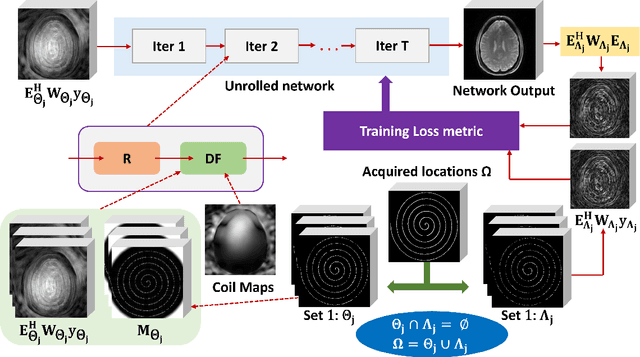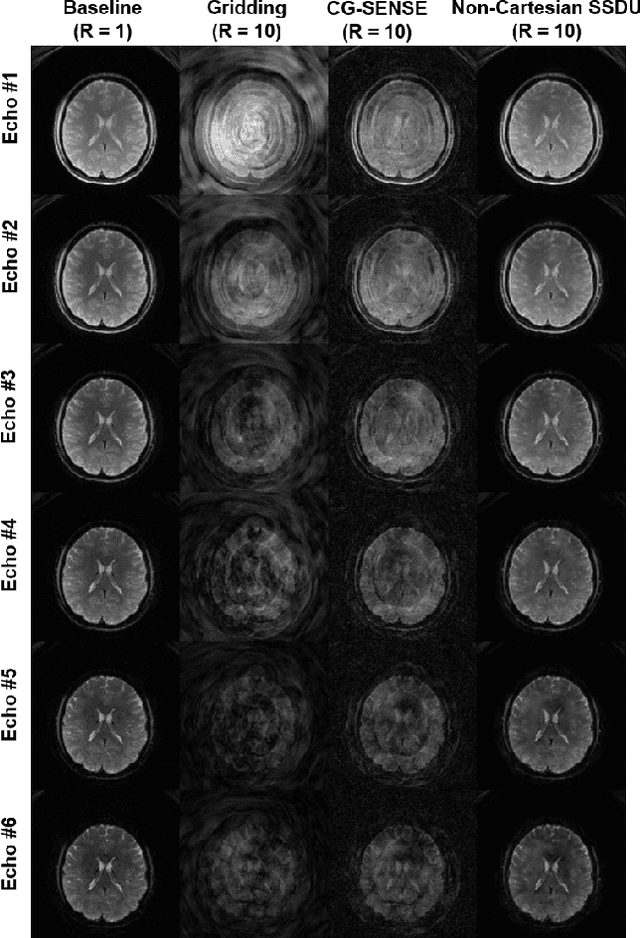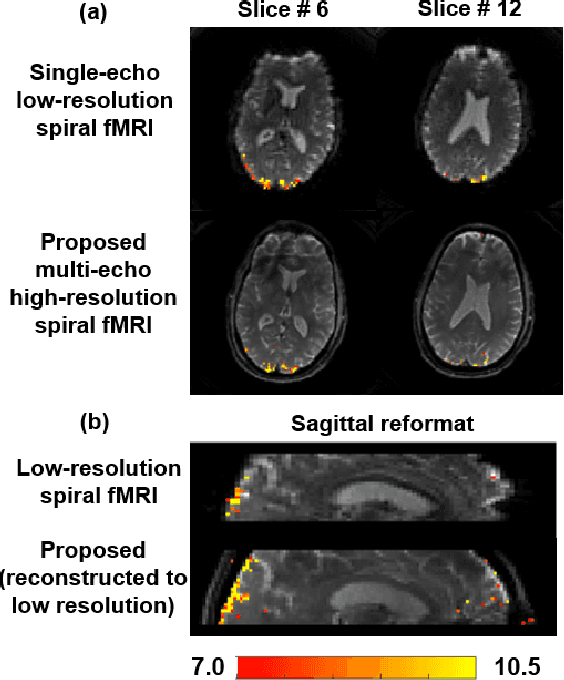V. Andrew Stenger
Non-Cartesian Self-Supervised Physics-Driven Deep Learning Reconstruction for Highly-Accelerated Multi-Echo Spiral fMRI
Dec 09, 2023


Abstract:Functional MRI (fMRI) is an important tool for non-invasive studies of brain function. Over the past decade, multi-echo fMRI methods that sample multiple echo times has become popular with potential to improve quantification. While these acquisitions are typically performed with Cartesian trajectories, non-Cartesian trajectories, in particular spiral acquisitions, hold promise for denser sampling of echo times. However, such acquisitions require very high acceleration rates for sufficient spatiotemporal resolutions. In this work, we propose to use a physics-driven deep learning (PD-DL) reconstruction to accelerate multi-echo spiral fMRI by 10-fold. We modify a self-supervised learning algorithm for optimized training with non-Cartesian trajectories and use it to train the PD-DL network. Results show that the proposed self-supervised PD-DL reconstruction achieves high spatio-temporal resolution with meaningful BOLD analysis.
Highly Accelerated EPI with Wave Encoding and Multi-shot Simultaneous Multi-Slice Imaging
Jun 03, 2021



Abstract:We introduce wave encoded acquisition and reconstruction techniques for highly accelerated echo planar imaging (EPI) with reduced g-factor penalty and image artifacts. Wave-EPI involves playing sinusoidal gradients during the EPI readout while employing interslice shifts as in blipped-CAIPI acquisitions. This spreads the aliasing in all spatial directions, thereby taking better advantage of 3D coil sensitivity profiles. The amount of voxel spreading that can be achieved by the wave gradients during the short EPI readout period is constrained by the slew rate of the gradient coils and peripheral nerve stimulation (PNS) monitor. We propose to use a half-cycle sinusoidal gradient to increase the amount of voxel spreading that can be achieved while respecting the slew and stimulation constraints. Extending wave-EPI to multi-shot acquisition minimizes geometric distortion and voxel blurring at high in-plane resolution, while structured low-rank regularization mitigates shot-to-shot phase variations without additional navigators. We propose to use different point spread functions (PSFs) for the k-space lines with positive and negative polarities, which are calibrated with a FLEET-based reference scan and allow for addressing gradient imperfections. Wave-EPI provided whole-brain single-shot gradient echo (GE) and multi-shot spin echo (SE) EPI acquisitions at high acceleration factors and was combined with g-Slider slab encoding to boost the SNR level in 1mm isotropic diffusion imaging. Relative to blipped-CAIPI, wave-EPI reduced average and maximum g-factors by up to 1.21- and 1.37-fold, respectively. In conclusion, wave-EPI allows highly accelerated single- and multi-shot EPI with reduced g-factor and artifacts and may facilitate clinical and neuroscientific applications of EPI by improving the spatial and temporal resolution in functional and diffusion imaging.
 Add to Chrome
Add to Chrome Add to Firefox
Add to Firefox Add to Edge
Add to Edge